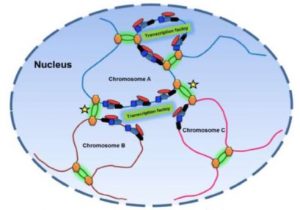
Daniel et al., 2014
- What are two things that you learned in the first few weeks of the course? Please give a brief description of them (~one sentence).
- I Learned how to interpret and communicate the data that is presented. I wasn’t clearly aware of the difference between explaining what the data shows, direct conclusions from the data, and interpretations. I think I still need to work more on making the clear distinctions as well as presenting my thoughts more clearly.
- I learned that enhancers do not necessarily have to be on the same chromosome of the gene that it acts on. I learned about enhancers this summer as a cis- regulatory element. It’s interesting how as we go into upper years, we learn that what we have learned in lower year classes are sometimes not entirely correct.
2. Do any of the two things described under Q1 fit in with/relate to what you said you wanted to learn in your DocuLearn 1? If so, how do they fit in?
- My two goals from DocuLearn 1 were: (1) learning based on literature reviews and articles (2) developing scientific questions.
- I think learning how to interpret data relates to my second goal in being able to develop scientific questions. The process of data interpretation entails asking questions to myself: what do the data show, what direct conclusions can I make, how can I explain this result etc. Then, I might shift from just focusing the data presented to looking at the bigger picture and the mechanisms involved. With practice, I should be able to come up with scientific questions at the bigger picture level.
3. So far, what has been the most challenging aspect of the course, if any? What about the most surprising/unexpected, if any?
- It’s really cool how students bring in ideas and information about experimental techniques. However, I found it hard to follow through all the ideas discussed in class – especially when some of them are not the preferable answers to the discussion questions but also not entirely wrong. I’m not sure if I was able to make clear notes on what part is applicable/ correct and what part isn’t.